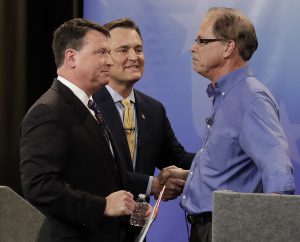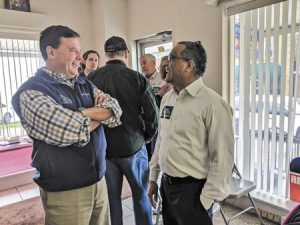Trump could continue to be big focus in Braun vs. Donnelly race for Senate
But political experts say a Trump-centered strategy might not be the best move now that Mike Braun has won the GOP primary race and will face Democratic Sen. Joe Donnelly in the fall election.





